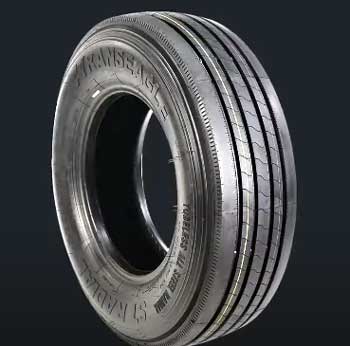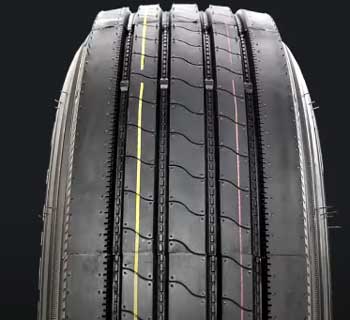When it comes to trailer tires, finding the right balance between durability, performance, and cost can be a bit of a journey. After all, the tires are the only contact your trailer has with the road, and you don’t want to risk a blowout when hauling your precious cargo.
I’ve had my fair share of experiences with various trailer tires over the years, and recently, I decided to give the Transeagle trailer tires a try. If you’re like me and are always on the lookout for dependable products, you’re probably wondering if these tires are worth the investment.
Let me walk you through my experience and why you might want to consider purchasing Transeagle trailer tires.
My Experience With Transeagle Trailer Tires
As someone who frequently hauls a variety of loads—from heavy equipment to travel trailers—I’ve come to understand the importance of robust and reliable trailer tires.
I decided to try Transeagle after reading several promising reviews and noticing that they offered a Load Range G, 14-ply rating, which is crucial for the heavy loads I often carry.
When the tires arrived, I was immediately impressed by their heft. These are not your average trailer tires; they feel like mini semi-truck tires.
The Transeagle tires are designed to provide stability and durability under heavy loads, and you can tell just by looking at them that they mean business. Mounting them was a bit of a challenge—these tires are tough, and they require some effort to get onto the rims.
But once they were mounted, the difference in towing was noticeable right away. The trailer felt more stable, and the tires provided a smooth ride, even when fully loaded.
Pros of Transeagle Trailer Tires
- Durability and Load Capacity

The standout feature of the Transeagle trailer tires is their durability.
The 14-ply rating means these tires are built to handle heavy loads with ease.
Whether you’re towing a travel trailer, a boat, or heavy equipment, these tires are designed to withstand the pressure.
The reinforced full nylon and ply construction stabilize the tread area and maintain the tire’s shape under load, which is crucial for safe and stable towing.
- Excellent Performance in Various Conditions
Transeagle tires are all-season, which means they perform well in dry, wet, and even light winter conditions.
The tread design is symmetric with closed and solid shoulder ribs, which helps in maintaining road contact and enhances driving stability.
I noticed that these tires handled wet roads with confidence, reducing the risk of hydroplaning—a big plus when you’re towing in unpredictable weather.
- Longer Tread Life
One of the reasons I opted for Transeagle was the promise of longer tread life. After several thousand miles of use, the tires still look brand new, which is more than I can say for some of the other brands I’ve tried.
The symmetric tread design optimizes pressure circulation, effectively combating irregular wear formations along the tread area. This means you won’t be replacing these tires as often as you might with other brands.
- Enhanced Control and Stability
I’ve found that the symmetric footprint of these tires ensures consistent and close road contact, which directly translates to better control over the trailer.
Whether I’m cornering or driving on the highway, the Transeagle tires respond well to the towing vehicle’s instructions, making for a safer and more controlled driving experience.
Cons of Transeagle Trailer Tires
- Mounting Difficulty

While the robustness of these tires is a major advantage, it also makes them quite difficult to mount.
If you’re planning to install them yourself, be prepared for a bit of a workout.
I had to use quite a bit of force to get them onto the rims, which might not be ideal for everyone.
If you’re not comfortable with this level of effort, I’d suggest getting them professionally mounted.
- Heavier Than Average
These tires are heavier than most other trailer tires in their class. While this contributes to their durability and load-carrying capacity, it can also add extra weight to your trailer.
Depending on what you’re towing, this might or might not be an issue. For me, the trade-off was worth it, but it’s something to consider.
- Availability
Transeagle tires, while available on popular platforms, can sometimes be harder to find in specific sizes or load ratings. It took me a bit of searching to find the exact size I needed.
If you’re in a hurry to replace your tires, this might be a minor inconvenience.
Also Read: This Is Why Ohtsu Tires Are So Cheap.
Maintenance Tips For Transeagle Trailer Tires
Maintaining your Transeagle trailer tires is crucial to ensure their longevity and performance. Here are some tips based on my experience:
- Regularly Check Tire Pressure
Maintaining the correct tire pressure is vital for any tire, but especially for trailer tires. Overinflating or underinflating can lead to premature wear and even blowouts.
For Transeagle tires, I found that keeping them at the manufacturer’s recommended pressure (which for mine was around 110 PSI) worked best. Make sure to check the pressure before every trip, especially when carrying heavy loads.
- Rotate Your Tires
Rotating your trailer tires regularly can help ensure even wear. I rotate mine every 5,000 miles or so, which helps prolong the life of the tires. Transeagle’s symmetric tread design already helps with wear, but rotation is an extra step that can make a big difference.
- Inspect for Wear and Tear
Before and after every trip, take a few minutes to inspect your tires for any signs of wear or damage. Look for cracks, bulges, or any objects embedded in the tread. Catching these issues early can prevent more serious problems down the road.
- Store Properly When Not in Use
If your trailer sits idle for long periods, make sure to store it in a way that protects the tires. Keep them covered to shield them from UV rays, which can cause the rubber to deteriorate.
Also, try to lift the trailer so the tires aren’t bearing the full weight of the trailer while it’s parked.
Comparison With Other Brands
When it comes to trailer tires, there’s no shortage of options. However, based on my experience, Transeagle stands out in a few key areas. Here’s how they compare to a couple of other popular brands:
- Transeagle vs. Goodyear Endurance
Goodyear Endurance is one of the most popular trailer tire brands, and for good reason—they’re reliable and well-made. However, I found that Transeagle tires offer better load capacity with their 14-ply rating compared to Goodyear’s 10-ply.
While Goodyear might have a slight edge in terms of brand recognition and availability, Transeagle wins in terms of heavy-duty performance and durability.
- Transeagle vs. Maxxis M8008
Maxxis M8008 tires are another strong contender in the trailer tire market. They offer a smooth ride and good performance in various conditions.
However, they’re typically more expensive than Transeagle tires, and I didn’t find that they offered significantly better performance to justify the higher price. For the money, Transeagle provides excellent value without compromising on quality.
- Transeagle vs. Carlisle Radial Trail HD
Carlisle is known for making solid trailer tires that perform well in most conditions. That said, I found that Transeagle’s tires outperformed Carlisle in terms of load capacity and tread life.
Carlisle tires are a bit easier to mount, but for long-term durability and heavy-duty use, I’d stick with Transeagle.
Also Read: This Is Why Lexani Tires Are So Cheap.
Frequently Asked Questions (FAQ)
Transeagle tires are manufactured by a company that specializes in commercial truck and trailer tires. These tires are designed with durability and performance in mind, specifically for heavy-duty applications. While they may not be as well-known as some other brands, they’ve built a solid reputation for producing reliable and long-lasting trailer tires.
The primary difference between Goodyear Endurance and Transeagle tires lies in their ply rating and load capacity. Transeagle tires typically have a higher ply rating (14-ply) compared to Goodyear Endurance (10-ply), making them more suitable for carrying heavier loads. Goodyear tires might have the edge in terms of brand recognition and availability, but Transeagle offers superior durability and load-carrying capability.
Tire longevity depends on several factors, including usage, maintenance, and road conditions. That said, Transeagle tires are designed with longevity in mind, thanks to their reinforced construction and symmetric tread design that combats irregular wear. With proper maintenance, these tires can last significantly longer than some of their competitors, making them a solid choice for those who tow frequently.
Choosing the best RV trailer tires depends on your specific needs. If you’re looking for a tire that offers excellent load capacity, durability, and performance in various conditions, Transeagle is a great option. However, if brand recognition and a slightly smoother ride are more important to you, Goodyear Endurance might be worth considering. Ultimately, the best tire is one that meets your load requirements, fits your budget, and performs well in the conditions you typically encounter.
Wrapping Up
In my experience, Transeagle trailer tires offer exceptional value for anyone who needs a reliable and durable tire for their trailer. They’re built to handle heavy loads, perform well in various conditions, and last longer than many of their competitors.
While they might be a bit challenging to mount and are heavier than average, the benefits far outweigh these minor inconveniences.
If you’re in the market for trailer tires that you can trust, I’d recommend giving Transeagle a try. You can find them on platforms like Amazon or Walmart, but for the best deals, check out dedicated tire retailers like Discount Tire or Tire Rack.
Whether you’re towing a travel trailer, boat, or heavy equipment, these tires are up to the task. They’ve certainly earned my trust, and I plan on sticking with them for my future towing needs.

